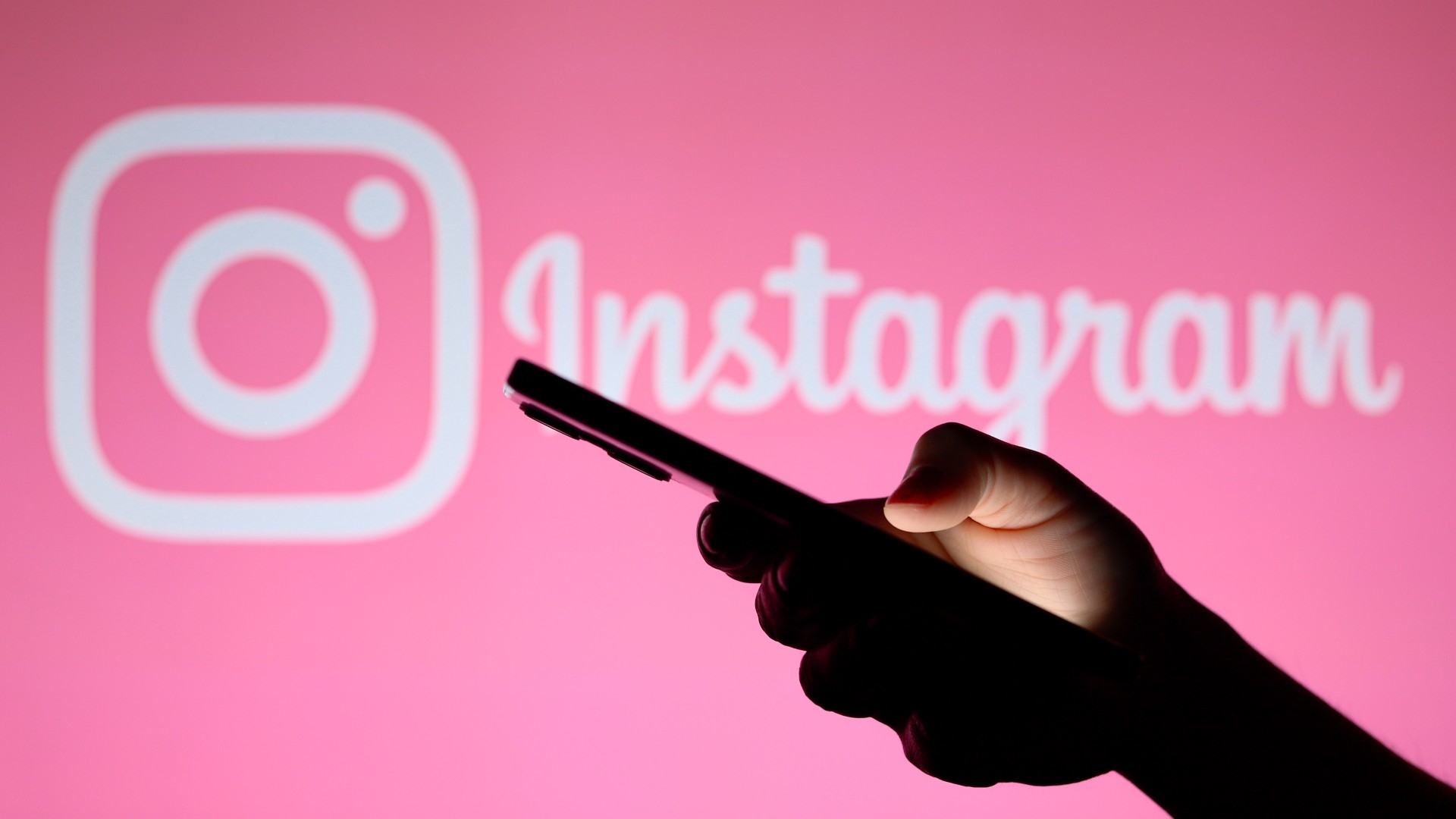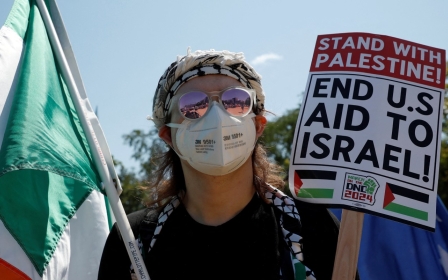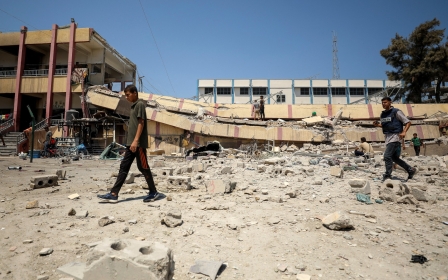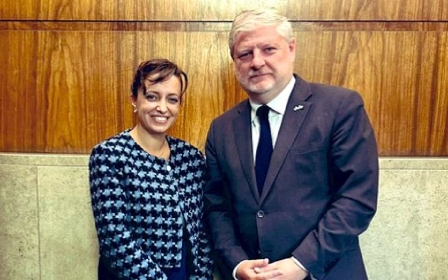War on Gaza: Palestinian youth self-censoring online for fear of repercussions

A new report reveals that since Israel’s war on Gaza began, young people in the occupied West Bank and Jerusalem have scaled back social media use out of fear of potential repercussions.
The Arab Center for the Advancement of Social Media, also known as 7amleh, detailed the digital security situation for Palestinians aged 15 to 30 in the occupied territories showing that 39 percent of respondents deleted political and social posts out of fear.
Additionally, 50 percent of users reported that platform restrictions, including shadow banning by Meta (the parent company of Facebook and Instagram), had led them to reduce their online activity.
The report also says that half of the users have either been questioned by Israeli security agencies or know of others who have faced similar scrutiny due to their social media posts.
The research, based on data from focus groups, field surveys, and a review of literature on digital security and rights, uncovers troubling insights into the digital realities faced by Palestinian youth.
New MEE newsletter: Jerusalem Dispatch
Sign up to get the latest insights and analysis on Israel-Palestine, alongside Turkey Unpacked and other MEE newsletters
The study concludes that digital security in the Palestinian context has become increasingly complex, with multiple entities violating digital rights and diverse threats emerging.
The report, titled: "Digital Security Among Palestinian Youth: A Study on Threats and Challenges in Light of the War on Gaza," highlights the escalating digital security concerns following Israel's ongoing war on Gaza since 7 October 2023, which has left more 40,000 Palestinian dead and almost 100,000 wounded.
The report identifies the Israeli occupation, digital platforms, Palestinian authorities, as well as private individuals and companies, as violators of digital rights.
The study emphasises a significant gap in awareness and understanding of digital security practices among users, making them vulnerable to various threats and attacks.
Palestinian internet users recognise the internet as an unsafe space, especially when discussing internal and external political issues related to Palestine and the Israeli occupation.
Growing online censorship
In a report last year, Human Rights Watch (HRW) said that Meta, which runs Instagram and Facebook, is systematically censoring content about Palestine on their social networks.
The 51-page report, “Meta’s Broken Promises: Systemic Censorship of Palestine Content on Instagram and Facebook,” released on Thursday by HRW, "documents a pattern of undue removal and suppression of protected speech including peaceful expression in support of Palestine and public debate about Palestinian human rights.
“Meta’s censorship of content in support of Palestine adds insult to injury at a time of unspeakable atrocities and repression already stifling Palestinians’ expression,” said Deborah Brown, acting associate technology and human rights director at HRW.
“Social media is an essential platform for people to bear witness and speak out against abuses while Meta’s censorship is furthering the erasure of Palestinians’ suffering,” added Brown.
Earlier this year, an Instagram update automatically limiting the amount of political content that shows up in users' feeds sparked a wave of discontent from social media users and activists, including pro-Palestine activists who accuse the platform of censorship.
A setting for "political content" was added to the app, which is owned by Meta, apparently without notifying users of the change. The setting is toggled to "limit" by default, though users can manually change this to "don't limit".
The change affects posts “likely to mention governments, elections, or social topics that affect a large group of people and/or society at large", according to a guidance note.
It will also affect "suggestions in Explore, Reels, feed recommendations and suggested users", as well as Instagram's sister app, Threads, it added.
Since the start of Israel's assault on the Gaza Strip, social media posts by Palestinian journalists and citizens on the ground have become key sources of information, as the Israeli government has banned international media from independently entering the besieged Strip.
Palestinians also use social media to call for help or get news about their loved ones amid frequent Israeli-imposed telecommunications blackouts on the besieged territory.
Middle East Eye delivers independent and unrivalled coverage and analysis of the Middle East, North Africa and beyond. To learn more about republishing this content and the associated fees, please fill out this form. More about MEE can be found here.




